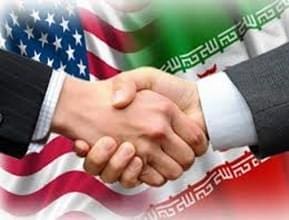 Iran has attended very important position in Global Scenario.
Iran has attended very important position in Global Scenario.
 US relationship with Iran Deteriorated in last many years, however, it started improving during second-term of President Obama. The United States’ relationship with Iran tops the list of foreign policy issues that will confront President-elect Donald Trump when he takes office in January. Like many other Republican presidential candidates, Trump was an early and staunch opponent of the Joint Comprehensive Plan of Action (JCPOA), the controversial nuclear deal concluded last summer between six world powers and Iran. But, Trump took up contradictory positions on the deal over the course of his campaign, at times promising to tear it up and at others suggesting he would simply amend it.
US relationship with Iran Deteriorated in last many years, however, it started improving during second-term of President Obama. The United States’ relationship with Iran tops the list of foreign policy issues that will confront President-elect Donald Trump when he takes office in January. Like many other Republican presidential candidates, Trump was an early and staunch opponent of the Joint Comprehensive Plan of Action (JCPOA), the controversial nuclear deal concluded last summer between six world powers and Iran. But, Trump took up contradictory positions on the deal over the course of his campaign, at times promising to tear it up and at others suggesting he would simply amend it.
As Trump readies his administration, he is likely to favor the latter course. For a host of reasons, it may be impractical for his administration to scuttle the agreement outright. Still, there is much that Washington can do with respect to Iran, especially by more rigorously enforcing the nuclear deal and constraining Iranian expansionism.
A STUBBORN ARRANGEMENT
The JCPOA’s status as an executive agreement, rather than as a formal treaty, means that the next president can indeed abrogate Washington’s commitments under the deal. But doing so wouldn’t nix the JCPOA entirely because of the deal’s multilateral nature. Even if the United States were to withdraw from the pact, the other signatories could keep the JCPOA in force despite pressure from the new administration to take a harder stance against Tehran.
It is true that Trump could decide to unilaterally impose (or reimpose) penalties on the U.S. companies doing business with the Islamic Republic. On its own, however, that will do a little to curb the activities of the foreign firms that are beginning to dip their toes back into the Iranian market, as these firms will not be affected by any new restrictions levied against American entities. And although the prospect of a stricter U.S. approach to Iran is likely to give such foreign businesses pause, at the end of the day, Washington will not be able to completely roll back the agreement without risking major trade disputes with states such as China and France, which are now busy deepening their economic stakes in the Islamic Republic. That prospect is something for which the Trump administration, eager to calm skittish international markets, will likely have little appetite.
In other words, notwithstanding his campaign pledges, the new president is liable to find that there is a little upside to scuttling the JCPOA and considerable reason to adapt and strengthen its provisions and penalties as much as possible.
AN EMBOLDENED IRAN
From the start, the nuclear deal sought to limit only one aspect of Iran’s rogue behavior: its persistent nuclear ambitions. The benefits that have been conferred to Iran since the deal’s implementation, however, have been much broader in scope, bolstering Tehran’s regional and indeed global strategy.
As one of the central conditions of the JCPOA, the United States and its partners in the P5+1 (China, France, Russia, the United Kingdom, and Germany) agreed to grant Iran access to some $100 billion in previously escrowed oil revenue upon the formal implementation of the deal, which occurred in January. For Iran, this represents an enormous windfall, amounting to roughly a quarter of the country’s annual GDP. The sum is roughly equivalent, in proportional terms, to the United States’ receiving a capital infusion of $4.2 trillion. Measured in today’s dollars, the amount of money released to Iran nearly matches the entire amount the U.S. government spent on the Marshall Plan, which covered 17 European countries over a period of four years following World War II.
This direct benefit has been amplified by a range of other measures—from the reintegration of Iran global markets through such mechanisms as the electronic payment system run by the Society for Worldwide Interbank Financial Telecommunications to the facilitation of Iran’s access to the U.S. dollar—and by the overall easing of sanctions against Iran, which has spurred a surge in new trade with the country. Taken together, these changes have set Iran on the path to economic recovery. The International Monetary Fund estimated last month that Iran’s GDP is set to grow by at least 4.5 percent in the coming year thanks to the JCPOA.
But if Iran’s economic prospects have fundamentally improved since the completion of the nuclear deal, its political outlook has not. Although the White House lobbied for the JCPOA by arguing that the deal would help empower moderate forces within Iran, nothing of the sort has occurred: the JCPOA has not significantly strengthened Iran’s reformists, and elections in recent months have only served to further entrench the country’s conservative status quo. Tehran’s anti-American animus also remains intact, and high-ranking Iranian officials, including Supreme Leader Ayatollah Ali Khamenei, have warned against the normalization of ties with the United States. The meaning of these developments is clear. Although Iran has profited handsomely from the nuclear deal, it has no interest in a more pacific relationship with the country principally responsible for making that deal possible.
 What the agreement has succeeded in doing, however, is reinvigorating Iran’s global ambitions. After laboring for years under international sanctions and with limited means to make its foreign policy vision a reality, the Islamic Republic is now undertaking a landmark expansion abroad. From its deepening military footprint in Syria to its renewed push for renewed push for engagement in Latin America, Tehran is unmistakably on the march.
What the agreement has succeeded in doing, however, is reinvigorating Iran’s global ambitions. After laboring for years under international sanctions and with limited means to make its foreign policy vision a reality, the Islamic Republic is now undertaking a landmark expansion abroad. From its deepening military footprint in Syria to its renewed push for renewed push for engagement in Latin America, Tehran is unmistakably on the march.
LEVERAGE AND COMPLIANCE Coping with an emboldened Iran will be one of the incoming administration’s cardinal tasks, and it will require a strategy that focuses on three priorities.
First, the United States needs to reestablish its economic leverage against Iran. Perhaps the most pernicious effect of the nuclear deal has been to set in motion a fundamental unraveling of the global sanctions regime against the country. From its efforts to encourage greater commerce with Iran to its effective investment in Tehran’s nuclear program through the purchase of excess heavy water from Iranian reactors, the Obama administration has compromised the sanctions architecture painstakingly erected against the Islamic Republic over the past decade and a half
The new administration will have more credibility than the current one to reverse this trend. Banks and other financial institutions have been slow to engage in business with Iran, worried about the potentially adverse and costly consequences of doing so. Trump’s unexpected election has reinforced their caution. By blacklisting additional Iranian entities associated with terrorism, nuclear and ballistic missile proliferation, or human rights violations, and by levying onerous fines on those companies doing business with them, the Trump administration could raise the stakes still further, sending a clear signal that it does not condone a return to business as usual with the Islamic Republic. The goal of such a step would be twofold: to reaffirm the United States’ seriousness in enforcing the terms of the deal while limiting the resources Iran could use to pursue its strategic ambitions. (For its part, although it may rage against any new restrictions, Iran’s government is likely to temper its response to them, remembering the ruinous consequences of earlier multilateral pressure.)
Next, the Trump administration should focus on enforcing Iran’s compliance with the deal. The Obama administration’s embrace of the agreement and its faith in the prospects of detente with Tehran have made it loath to hold the Iranian regime accountable, either for substantive breaches of the accord or for related activities—such as repeated ballistic missile tests—that violate the spirit of the pact. On the campaign trail, Trump pledged to penalize Iran for such infractions.
His administration can start this process by mandating stricter monitoring of Iran’s compliance with the terms of the JCPOA, both through International Atomic Energy Agency inspections and independent means and by explicitly outlining the penalties (economic, political, and even military) that Washington will impose if Tehran fails to live up to its commitments—something that has been conspicuously absent from the Obama administration’s approach so far.
Finally, the Trump administration should focus on constraining Iranian adventurism. The JCPOA appears to have enabled Tehran to significantly expand its strategic goals in the Middle East and beyond. In June 2015, before the formal conclusion of the nuclear deal, Khamenei unveiled his government’s Sixth Development Plan, which calls for increasing the national defense budget (then at $14 billion) by nearly a third, to five percent of Iran’s GDP—a surge that appears to have been predicated on Iran’s ability to access additional resources as a result of the nuclear deal. Since then, Tehran has made good on this priority, concluding billions of dollars in new accords for military hardware with both China and Russia and stepping up its support for radical regional proxies (such as Hezbollah and Iraq’s Shiite militias). For Washington, reinforcing stability in the Middle East will hinge on constraining these advances and on implementing policies—from regional missile defense arrangements to stepped-up counterterrorism cooperation with U.S. allies—that can deter or counterbalance a bolder Iran.
RHETORIC AND REALITY
It is hardly surprising that Iranian officials have greeted Trump’s unexpected election with a flurry of condemnations. Iranian President Hassan Rouhanihas boasted that the new president lacks the power to rescind the nuclear deal because Iran’s “engagement” on the nuclear issue has put its relations with other countries “on an irreversible path of growth.” But beneath Tehran’s bluster is a sense of trepidation that Iran—which has had enormous latitude in the Obama era—could end up being one of the biggest losers of Trump’s foreign policy.
This fear is justified. The advent of a Trump White House is likely to augur a seismic shift in the United States’ approach to Iran. Just how fundamental a change it will be remains to be seen, but the incoming president clearly has the motivation to roll back the Obama administration’s policy toward the Islamic Republic. Just as clearly, he has the means to begin doing so.
This is going to be a very important relationship which may decide the fate of Middle East politics. Iran can play very important role in today’s time as it has oil, large population and huge support from China as they are the largest exporters and importers. China has already promised very huge investment few hundred billion dollars in next few years.
Apart from that this will continue support from European Union, Britain and many other countries which will help Iran to grow and play a leading role.Therefore any decision in policy matter regarding Iran should be consider carefully.
Sourced & Compiled by
Mr. Arvind Sinha – CEO
M/s. Business Advisors Group, Mumbai
Cell No. 9820062612 / 8108612612
Email ID :[email protected] / [email protected]
